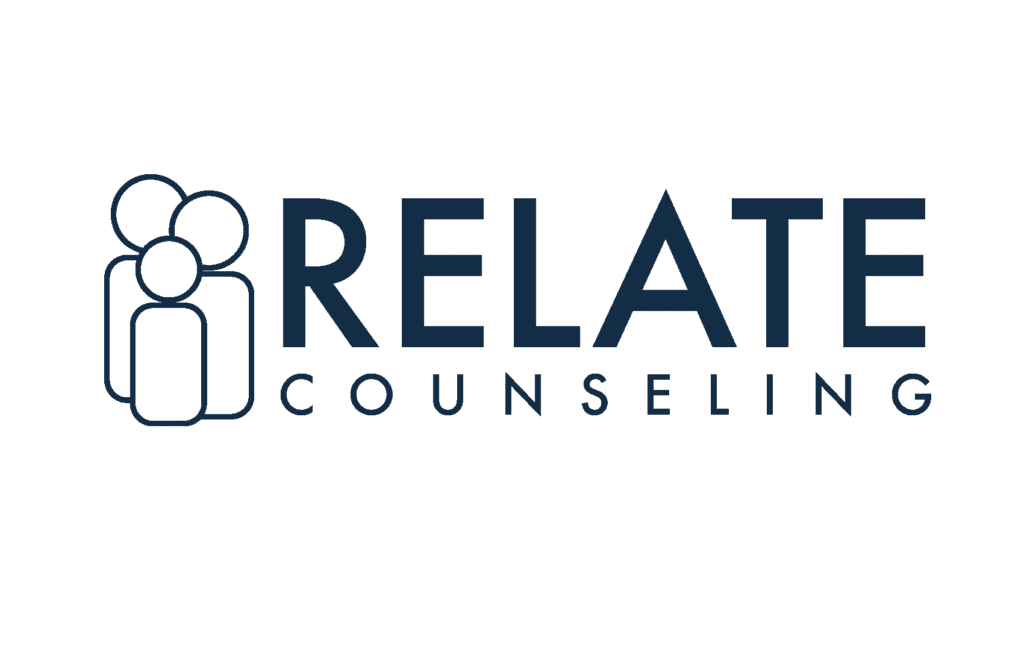Realizing you might have married the wrong person can feel like you’re stuck in a bad dream, then you go searching about “what to do if you marry the wrong person”. It doesn’t matter whether this thought popped up after a few years of marriage or just months; the feeling can cause a lot of stress and sadness. It’s a challenging situation, but it’s not the end of the road.
Why Is It Important to Recognize Unhappiness in Marriage?
Recognizing unhappiness in marriage is crucial for many reasons. It might seem simpler to brush feelings of discontent under the rug, hoping they’ll resolve themselves. However, acknowledging these feelings is the first step towards addressing them, and it can lead to a healthier and happier relationship or personal well-being.
Unhappiness Doesn’t Just Go Away on Its Own
One of the biggest myths about unhappiness in marriage is that it will just disappear with time. Unfortunately, this rarely happens. Unresolved issues often grow larger and become more complicated to solve. Recognizing and admitting to unhappiness does not mean you’re failing at your marriage; it means you’re aware of its current state and are open to finding solutions.
It Affects Your Health
The toll of unhappiness in marriage isn’t just emotional; it’s physical, too. Stress from a troubled relationship can lead to sleep problems, changes in appetite, or even chronic conditions like heart disease. Admitting there’s a problem allows both partners to seek the help they need, whether that’s couples therapy, individual counseling, or simply time to focus on improving their emotional well-being.
Unhappiness Impacts the Entire Family
For those with children, it’s important to remember that the marital environment shapes their upbringing. Kids are incredibly perceptive and can pick up on the tension between their parents. They learn about relationships from watching theirs. A home filled with unresolved conflict can lead to anxiety and behavioral issues in children. By recognizing and addressing unhappiness, parents can model healthy coping strategies for their kids.
Ignoring Problems Can Lead to Resentment
When issues aren’t acknowledged and feelings aren’t expressed, resentment can build up over time. This can erode the love and respect that form the foundation of any marriage. Recognizing and discussing unhappiness can prevent this buildup and help maintain the partnership’s integrity, even through tough times.
Happiness Is Worth Pursuing
Everyone deserves happiness, including those who are married. Accepting unhappiness as a permanent state sacrifices personal well-being for the sake of preserving the status quo. It’s important to remember that happiness is a worthy pursuit and that recognizing marital problems is the first step towards achieving it, whether that’s together or apart.
It Can Lead to Growth and Deeper Connection
Facing and working through unhappiness can lead to personal growth and a deeper connection between partners. Addressing issues requires communication, vulnerability, and understanding, which can strengthen the bond between partners. Many couples find that their relationship is richer and more fulfilling after navigating through a challenging period together.
Recognizing Unhappiness Can Lead to Necessary Change
Change is scary but necessary for growth, feeling like you married the wrong person could be an indication that you both need to realign aspects of your life to attain happiness in your current situation. Recognizing unhappiness can be the catalyst for making positive changes in both personal lives and relationships.
This could mean setting new goals together, finding hobbies to enjoy separately or together, or learning more effective communication strategies. Embracing change can revive a marriage that feels stagnant.
It Opens the Door to Help and Support
Admitting unhappiness in marriage is not a sign of weakness; it’s a brave step towards improving the situation. This recognition allows couples to seek help and support from therapists, counselors, or support groups. It can also encourage friends and family to provide the love and support needed during this time.
It Prevents Unnecessary Sacrifices
Many people stay in unhappy marriages out of a sense of duty or fear of being alone, sacrificing their happiness in the process. Recognizing and confronting unhappiness (especially if you’re thinking you married the wrong person) allows individuals to assess their situation clearly and make decisions based on their well-being, not just their obligations.
Steps to Take
Step 1: Understand Your Feelings
First, it’s essential to ask yourself why you feel like you might have married the wrong person. Sometimes, what feels like a major problem could be a series of small issues that have piled up. Are these feelings based on serious matters like differences in core values, or could they be related to more solvable issues such as stress from work or not spending enough quality time together?
Take some time to reflect on what specifically makes you feel this way. Writing down your thoughts can help clarify them. Try to determine if the relationship has suffered due to neglect or more profound, fundamental differences.
Step 2: Communication is Key
Once you’ve got a clearer view of your feelings, the next vital step is to talk to your spouse. It’s crucial to express your feelings honestly but respectfully. Choose a good time and place for this serious conversation, perhaps a quiet evening at home.
Be calm and clear about your feelings and encourage your spouse to share their perspective. This isn’t about blaming each other but understanding each other’s views and feelings. You might discover that your partner has been feeling the same, or they may be completely unaware of your doubts.
Step 3: Seek Professional Help
If your conversation with your spouse indicates that you are both willing to work on your marriage, seeking professional help like couples therapy could be a wise choice. Sometimes, an impartial third party, like a therapist, can provide the insights and tools needed to repair and strengthen the relationship. Therapy can be a safe space to explore deeper issues, such as breaches of trust, mismatched life goals, or different parenting styles. I
t can help you both better understand each other and learn effective ways to communicate and resolve conflicts.
Step 4: Give Time and Effort
Relationships require both time and effort to grow and heal. If you and your spouse decide to work through your issues, be prepared to invest in both. Set aside quality time to spend together, and maybe try new activities that can help you bond. Be patient with each other and with the process, as rebuilding a relationship doesn’t happen overnight.
Regular check-ins on how you both feel about the changes and the relationship can also help keep things on track. Celebrate small victories to keep the motivation high.
Step 5: Evaluate Your Values and Goals
Sometimes, the feeling of having married the wrong person stems from a misalignment in core values and life goals. It’s important to evaluate these areas honestly. Do you both value the same things in life? Are your life goals compatible?
This could involve discussions about career ambitions, views on parenting, financial priorities, or lifestyle choices. If there are significant differences, consider how much compromise each of you is willing to make. It’s crucial that both partners feel fulfilled and not as if they are giving up their dreams.
Step 6: Understand the Impact on Family
If you have children, the decision to stay together or part ways involves more than just the two of you. Consider how your relationship and its possible outcomes affect your kids. Strive for an environment where your children can thrive. Sometimes, maintaining a healthy co-parenting relationship after separation can be healthier for kids than staying in a conflicted marriage.
Step 7: Reflect on Personal Growth
Look at this challenging time as an opportunity for personal growth. Whether you stay together or part ways, understanding more about your emotional needs, communication style, and relationship dynamics can be enlightening. Learning from the current situation can improve how you handle relationships moving forward.
Step 8: Considering Separation
If efforts to resolve the issues don’t seem to work, and if staying together is doing more harm than good to everyone involved, considering a separation might be necessary. This decision should come after thorough consideration and ideally after exploring all other avenues. In such cases, it’s wise to approach the separation process respectfully and amicably. Legal advice might be required, especially when managing shared assets and responsibilities.
Exploring Solutions
Communicate Openly and Honestly
Good communication acts as the glue for any marriage. It’s more than just talking; it’s about sharing thoughts, feelings, and fears without judgment. Creating a space where both partners feel heard is vital. Consider setting aside regular times for check-ins without distractions like TVs or phones.
Self-Reflection and Responsibility
Before examining a partner’s faults, look inward. What role do you play in the marriage’s challenges? Taking responsibility for your actions and considering how they affect your partner is a key starting point. This self-awareness can pave the way for mutual understanding and patience.
Seek Professional Guidance
Sometimes, the tool you need is someone who can help you both see things differently. Marriage counselors are trained to help couples navigate choppy waters. They provide strategies for improving communication, solving conflicts, and rekindling affection.
Reconnect Through Shared Experiences
When was the last time you both genuinely had fun together? Revisiting shared interests or embarking on new experiences can reignite the spark that brought you together. Dedicate time for dates, hobbies, or even a short weekend trip. It’s about making positive memories to balance the challenging times.
Cultivate Appreciation and Positivity
Expressing gratitude for your partner can have a surprisingly powerful effect. Compliments, saying thank you, and acknowledging their efforts can boost morale for both of you. Try to focus on the positives in your relationship as a balance to the areas you’re working on.
Be Patient and Give Time
Marriage healing doesn’t happen overnight. Lay down your expectations for a quick fix and give your efforts the time they need to bear fruit. Patience signals to your partner that you’re committed for the long haul.
Establish Boundaries
Knowing and respecting each other’s boundaries is key to a healthy relationship. Boundaries help prevent feelings of resentment or being taken for granted, which often lead to bigger issues in marriages.
Commit to the Process
Fixing a marriage means committing to a process. It’s about continuously choosing to work on the relationship, especially when it’s tough. Be prepared to put in the effort consistently, not just when things feel dire.
Rediscover Intimacy
Emotional and physical intimacy is the cornerstone of any marital relationship. Small gestures and physical connections like holding hands or hugs can strengthen bonds. Prioritize deeper intimacy and affection without the pressure of sex, which can sometimes reignite that side of your relationship naturally.
Develop New Habits
Old habits can contribute to a marriage’s struggles. Work together to identify negative patterns and develop new habits that promote a healthier dynamic. This might include the way you handle disagreements or manage stress.
Mutual Goals and Dreams
Having shared aspirations can pull you together when things get tough. Whether it’s a goal for your family, a shared hobby, or planning your dream vacation, working towards something together can bring unity and excitement into the relationship.
Keep the Bigger Picture in Mind
When working through marital issues, it’s easy to get bogged down by the daily grind. Keep an eye on the bigger picture and the reason you committed to each other. This sense of a shared journey is often what can carry you through the healing process.
Takeaway
Knowing what to do if you feel like you married the wrong person and recognizing unhappiness in marriage is a crucial step toward resolution, whether that means working together to improve the relationship or parting ways amicably. Addressing these feelings head-on can help individuals prevent further emotional harm, protect their well-being and the well-being of their family, and pave the way for a healthier, happier future.
Remember, seeking happiness is not selfish; it is necessary for a fulfilling life.

At Relate Counseling, we specialize in helping individuals and couples navigate through the challenges their relationships face.
Our experienced therapists offer tailored marriage counseling in Utah and Florida, aiming to provide the healing and understanding needed to forge a stronger bond.
Don’t let doubts or struggles define your relationship’s future.
Contact us today to schedule your appointment, and remember, the first session is on us. Opportunities to improve your relationship are waiting; let us help you seize them.
From enhancing communication to resolving conflicts and strengthening bonds, our services are tailored to foster meaningful and secure connections within your restructured family.
Learn more about how we can support you at Relate Counseling. If you have any questions, don’t hesitate to contact us. Let’s work together toward healing and strengthening your family bonds.




